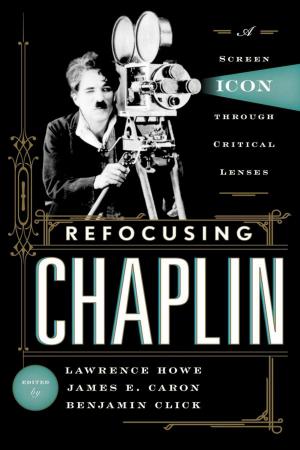Libraries, Classrooms, and the Interests of Democracy
Marking the Limits of Neoliberalism
Nonfiction, Reference & Language, Language Arts, Library & Information Services, Education & Teaching, Educational Theory, Educational Reform, Social & Cultural Studies, Political Science, Government, Democracy| Author: | John Buschman | ISBN: | 9780810885295 |
| Publisher: | Scarecrow Press | Publication: | July 30, 2012 |
| Imprint: | Scarecrow Press | Language: | English |
| Author: | John Buschman |
| ISBN: | 9780810885295 |
| Publisher: | Scarecrow Press |
| Publication: | July 30, 2012 |
| Imprint: | Scarecrow Press |
| Language: | English |
Library marketing and advertising in schools are now very widespread practices. Since libraries and schools have been strongly linked to economic performance, adopting marketing and advertising techniques into them is often seen as a natural extension of that linkage. But should that be the case? John Buschman argues that as we shape and guide our educative institutions, we should carefully consider the consequences.
In Libraries, Classrooms, and the Interests of Democracy: Marking the Limits of Neoliberalism, Dr. Buschman details the connections between our educative institutions and democracy, and the resources within democratic theory reflecting on the tensions between marketing, advertising, consumption, and democracy. Drawing on wide scholarship to explore some of the history of democratic theory and its intertwinements with capitalism, the author helps the reader think about how democracies can deal with the challenges of this current historical phase. The complex arguments of de Tocqueville, Dewey, Marx, and many others help clarify how the market has pierced classrooms and libraries with advertising and marketing—and why this is of concern in the interests of democracy.
In this volume, Buschman provides a history of marketing and advertising and their entanglements with democracy, education, and libraries. He then engages Democratic Theory and the framework it provides to critique neoliberalism’s influences. A final chapter traces the trajectory of neoliberalism and educative institutions on our democracy. Throughout, the book makes clear that issues concerning public educative institutions in a democracy are political. A provocative and engaging book, Libraries, Classrooms, and the Interests of Democracy should be required reading for anyone interested in the challenges facing libraries today.
Library marketing and advertising in schools are now very widespread practices. Since libraries and schools have been strongly linked to economic performance, adopting marketing and advertising techniques into them is often seen as a natural extension of that linkage. But should that be the case? John Buschman argues that as we shape and guide our educative institutions, we should carefully consider the consequences.
In Libraries, Classrooms, and the Interests of Democracy: Marking the Limits of Neoliberalism, Dr. Buschman details the connections between our educative institutions and democracy, and the resources within democratic theory reflecting on the tensions between marketing, advertising, consumption, and democracy. Drawing on wide scholarship to explore some of the history of democratic theory and its intertwinements with capitalism, the author helps the reader think about how democracies can deal with the challenges of this current historical phase. The complex arguments of de Tocqueville, Dewey, Marx, and many others help clarify how the market has pierced classrooms and libraries with advertising and marketing—and why this is of concern in the interests of democracy.
In this volume, Buschman provides a history of marketing and advertising and their entanglements with democracy, education, and libraries. He then engages Democratic Theory and the framework it provides to critique neoliberalism’s influences. A final chapter traces the trajectory of neoliberalism and educative institutions on our democracy. Throughout, the book makes clear that issues concerning public educative institutions in a democracy are political. A provocative and engaging book, Libraries, Classrooms, and the Interests of Democracy should be required reading for anyone interested in the challenges facing libraries today.















